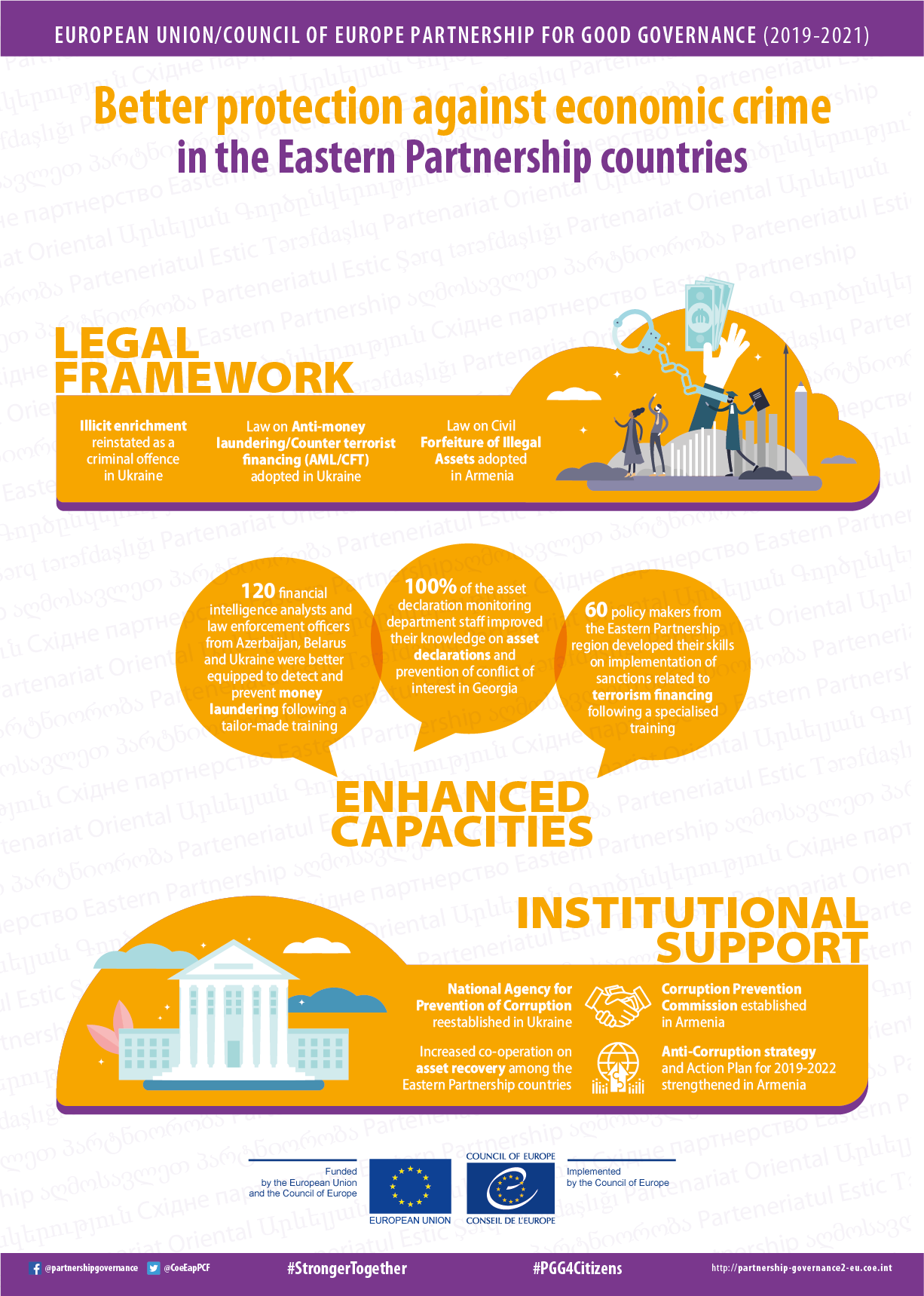The project aims to achieve this by supporting the Armenian authorities in strengthening legislative and institutional frameworks for anti-corruption and asset recovery and developing capacities and tools to prevent and fight economic crimes
One of the main beneficiaries of the Project is the newly established Anticorruption body: The Corruption Prevention Commission (CPC). The project has been supporting the enhancement of operational capacities of the CPC in different areas.
“The Council of Europe project is supporting the development of two methodologies - On integrity checking of the public officials and on analysing the asset declarations”, said Haykuhi Harutyunyan, the Chairperson of the Corruption Prevention Commission (CPC).
The methodologies are essential for the institutional building of the Commission to enable it to prevent corruption among public officials. Ms Harutyunyan told that these documents ensure firm ground for the process to be sustainable and free from control by any state agencies and entities.
“The process is based on the professional methodology, which is applied equally to any public official or a nominee, who are obliged to comply with the requirements of the Law on Civil Service”, she said.
The work on two methodologies started in April 2020.
“The integrity checking is a complex process, that relates to public officials and especially judicial nominees, and getting a relevant methodology is one of the main objectives for the CPC”, she said. “The methodologies are designed to analyse the declarations and check the public officials’ background, education, work experience, property and income to ensure that the past activities are legal, and that there is no possible fraud or corruption”.
She told that up to ten public officials have already undergone the integrity checking methodology, which includes not only Council of Europe standards, but also Organisation for Economic Co-operation and Development (OECD) standards. Moreover, around 230 declarations have been analysed by using some aspects of the provided methodology on asset, income and interest declarations.
“The methodologies are the main activities, which can help prevent corruption, and inspite of the work on the methodologies which is still ongoing, the CPC already uses them together with the recommendations of the Council of Europe”, Ms Harutyunyan said. She added that the experts work with both methodologies in order to improve them and adjust to the regulations of the amended law.
She noted also that the methodology on analysing the property, income and interest declarations is the key instrument to analyse the data to reveal any possible fraud, which are demonstrated not only in numbers but also in the activities of the public officials.
“The co-operation with the Council of Europe within this project ensures that the process in this sensitive case is implemented in line with international standards”, Ms Harutyunyan said. She added that it is very important for Armenia to build the system in compliance with international standards and to get the approval of the Council of Europe.
The PGGII Project will continue supporting the institutional capacity building of the CPC, by conducting trainings for staff members of the Commission. Besides, the Project will support the CPC in developing the Code of Conduct for Public Officials.




